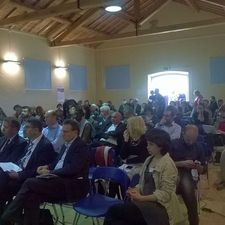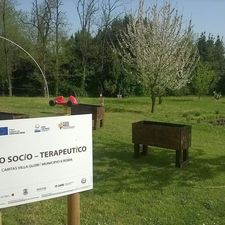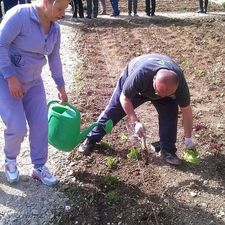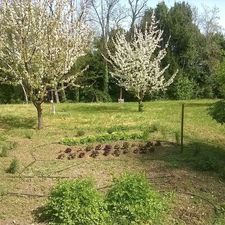SIDIG MED finalises in Rome
| Subject: International Relations
The European urban and peri-urban agricultural project highlights the social function of kitchen gardens
From 6 to 8 April the final event of the SIDIG MED project was held in Rome with different conferences and seminars around the lessons learned on managing urban and peri-urban agricultural spaces and their importance as a tool for social inclusion, in which all partners participated: the Royal Botanic Garden in Tell Ar-Rumman (Jordan), the Ministry of Agriculture of Al-Balga (Jordan), Mahdia (Tunisia), Rome and the AMB, from the Infrastructures Division, the International Department and the Medcities network.
The AMB participated by making several speeches on the involvement of local stakeholders, the sustainability of the projects, their impact and the possibility of repeating them in other Euro-Mediterranean countries.
Over the course of the three days, partners could see the inclusive urban and peri-urban agricultural project from the ground in Rome and in Monte Testaccio, as another way of perceiving common Mediterranean roots.
All parties also had the chance to present their pilot projects. The Barcelona Metropolitan Area one opened on 12 March, with 36 plots of social, community and organic kitchen gardens on the town edge of Sant Boi de Llobregat and is managed by the Marianao Foundation, an organisation with deep roots in the neighbourhood that works for social inclusion. The kitchen gardens were assigned to people at risk of exclusion, who received technical training to be able to produce their own kilometre zero foods.
SIDIG-MED is a European project in the ENPI CBC MED programme between metropolitan cities and regions south and north of the Mediterranean. With a budget of close to € 2,000,000, it started in 2013 and finished in April 2016.

















































